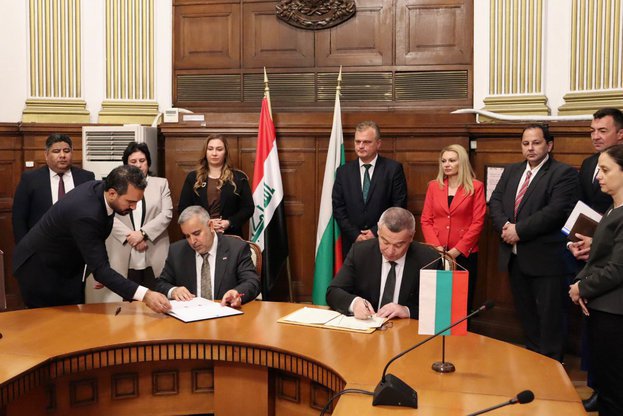
Minister Georgi Tahov and his Iraqi counterpart, Abbas Jabr Al-Maliki, have signed a Memorandum of Understanding (MoU) on bilateral cooperation in agriculture and food. The document was signed at the Ministry of Agriculture, within the framework of the official visit of Minister Al-Maliki to the Republic of Bulgaria (2–6 June 2025).
The aim of the document is to lay the foundations for a more active partnership through the exchange of knowledge, scientific and technical achievements, enhanced trade in agricultural and food products, and joint projects in areas of mutual interest.
During the meeting, Minister Tahov expressed optimism about deepening cooperation, stressing the importance of the Iraqi market for Bulgarian agricultural producers and processors. "Trade in agricultural and food products is relatively low and does not reflect the potential of our countries," Minister Tahov said. He noted that Bulgaria can offer both safe and quality food and live animals raised according to the highest international health and welfare standards.
"Bulgaria and Iraq are connected by very good traditional contacts, which have the potential for development with the signing of the Memorandum," noted Minister Al-Maliki. He pointed out that the deliveries of products can be carried out within two days.
The ministers agreed to establish expert groups, headed by deputy ministers from both ministries, to meet every three months to discuss ongoing issues related to bilateral cooperation and mutual assistance.
Bulgarian-Iraqi relations in agriculture are marked by a positive trade balance for Bulgaria. In 2024, Bulgarian agricultural exports to Iraq reached USD 137.7 million – an increase of nearly 28% compared to the previous year, the ministry said. Sunflower oil remains the main export product. Other export products include hen eggs for incubation, live cattle, food industry products, and bakery goods. Imports from Iraq are minimal, totalling USD 1.3 million, mainly truffles and frozen mushrooms.
Minister Tahov emphasized opportunities for collaboration in agricultural science, digitization, climate change adaptation, and water resource management. Proposals were made to strengthen ties between research centres in both countries and encourage participation in bilateral seminars.